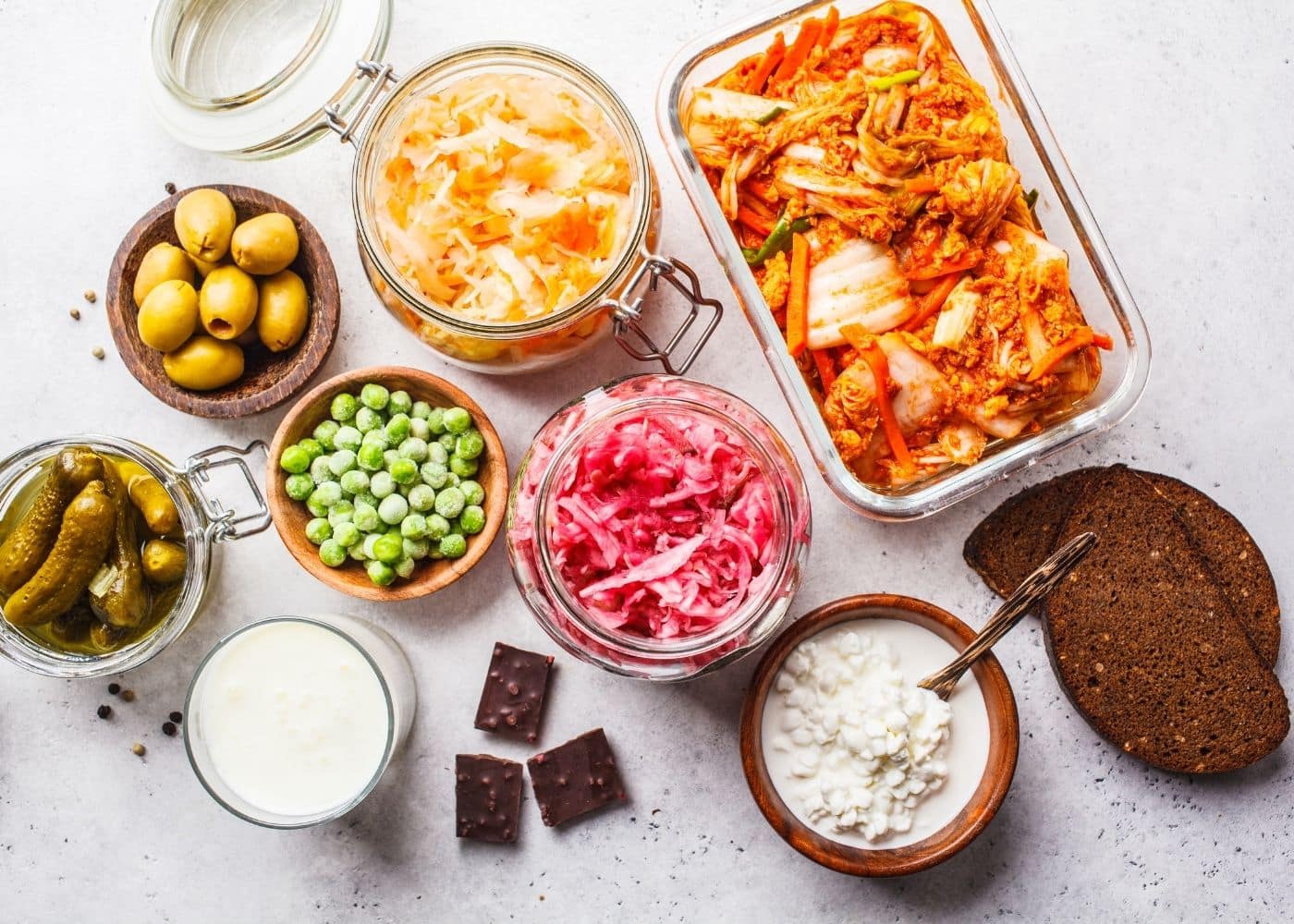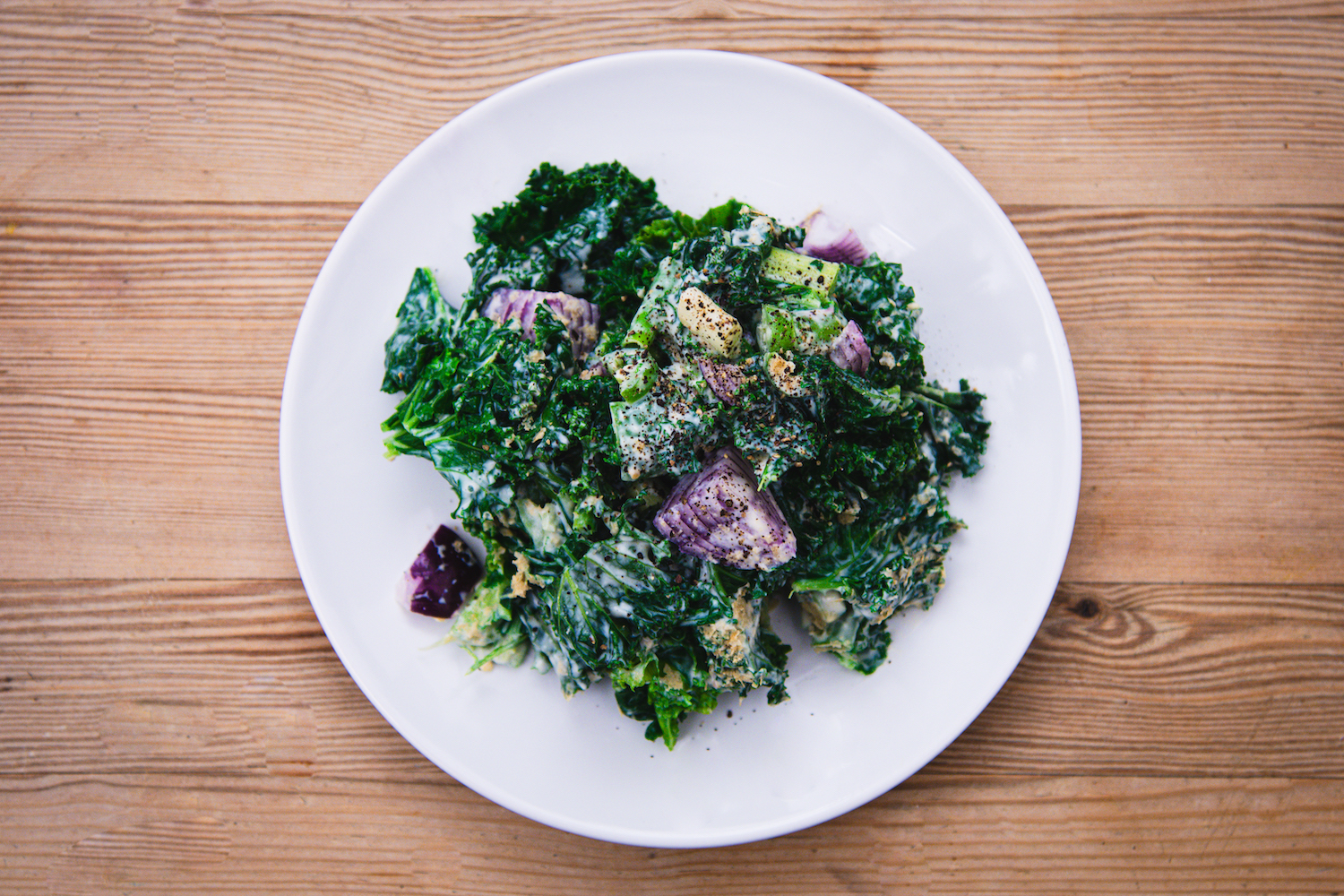Whether you are vegan or vegetarian, a diet consisting of primarily plant-based foods is usually synonymous with a healthy lifestyle. Yet, did you know that a plant-based diet has also been linked with a healthier gut microbiome? Here’s some food for thought about switching to a more plant-based diet – for the sake of your gut.
The average human gut microbiome is made up of more than 1000 microbial species, with the most represented coming from just two phyla: Bacteroidetes and Firmicutes1. The most common genera include Bacteroides, Prevotella, Bifidobacterium, and Eubacterium, amongst others2. They exert their effects on our health through the metabolites they produce, consequently affecting our digestive system, local immunity, brain, and genes.
However, somewhat intuitively, we know that what we eat can have an impact on our microbiome and, consequently, our health. Numerous scientific studies have offered supportive findings: research has consistently shown that vegan and vegetarian diets foster similar microbiomes, whereas both are significantly different to an omnivore’s microbiome3.
Plant-based diets usually reflect a more diverse microbiota consisting of several ‘protective’ bacteria; they are also associated with higher levels of short-chain fatty acids (SCFAs), microbial metabolites that are important energy sources for the body and benefit gut health.
These microbiome differences likely come from the different bacteria directly consumed through food, its constituent substrates, pH, and regulation of gene expression of the host or their microbiome4. Plant-based diets, for example, usually reflect a more diverse microbiota consisting of several ‘protective’ bacteria; they are also associated with higher levels of short-chain fatty acids (SCFAs), microbial metabolites that are important energy sources for the body and benefit gut health5.
Plant-based foods promote bacterial diversity which promotes good health
A diverse microbiome is strongly suggested to benefit human health through its association with BMI, obesity, and the quality of the arteries; and most research agrees long-term plant-based diets promote bacterial diversity in the gut and the even distribution of certain species. For example, studies found that a long-term diet of primarily fruits, vegetables, and whole grains is associated with a greater microbial diversity in the gut, a lower BMI, and reduced risk of gut inflammation6,7,8.
Vegan/vegetarian diets usually result in a higher abundance of ‘protective’ bacteria such as Bacteroidetes, Prevotella and Roseburia.
Thus, it is likely that the many health benefits of vegan/vegetarian diets are mediated by the gut microbiome, and their higher species diversity compared to omnivores. Specifically, vegan/vegetarian diets usually result in a higher abundance of ‘protective’ bacteria such as Bacteroidetes, Prevotella and Roseburia, which produce beneficial metabolites that play a major role in reducing risk factors for chronic inflammation and degenerative diseases9.
The Bacteroidetes:Firmicutes ratio is influenced by your diet
Though every individual’s microbiome is unique, there are certain microbial markers to look out for. Namely, much attention has been given to the representative ratio of the bacterial phyla Bacteroidetes and Firmicutes10. The B:F ratio is associated with varying states of health, and heavily affected by diet, especially when comparing an omnivorous diet with veganism or vegetarianism.
In a study comparing the effects of a Western diet (high animal fats and proteins) of Italian children versus a more plant-based diet of children from rural Burkina Faso, the microbiomes of the latter were found to have twice as much Bacteroidetes and nearly half as much Firmicutes compared to the Italian children11. This B:F ratio suggests that decreased Firmicutes, in favour of higher Bacteroidetes and Bifidobacteria, occurs in response to higher intake of starchy foods and may be beneficial in preventing and treating obesity12.
Studies show that the overall balance of Bacteroidetes and Firmicutes is an important marker for obesity and higher BMI.
While these associations between diet and microbiome compositions can be observed in many populations, other factors must also be taken into consideration, for example the host ethnicity, genotypes, and environmental factors. Nevertheless, some studies have shown that the overall balance of Bacteroidetes and Firmicutes can be an indicator for obesity and higher BMI; that is, a smaller B:F ratio correlates with a higher BMI13. Studies have suggested that changes in the levels of Firmicutes and Bacteroidetes can be potential indicators for obesity and a higher BMI. However, further well-designed studies are necessary to improve this knowledge, given that research consensus and consistency still need to be reached.
Which plant food components influence your gut microbiome?
Carbohydrates14
Digestible carbohydrates, such as glucose, sucrose, and fructose, have been shown to reduce pro-inflammatory Bacteroides and Clostridia.
Non-digestible carbohydrates reach the large intestine to be fermented by gut bacteria to provide energy or produce beneficial metabolites. These non-digestibles include resistant starch and certain sugars, and act as prebiotics by promoting the growth of beneficial bacteria such as lactic acid bacteria, Ruminococcus, Eubacterium rectale, and Roseburia. Meanwhile, these carbs also seem to protect against disorders of the cardiovascular system and central nervous system by reducing pro-inflammatory and cholesterol-promoting species from the genera Clostridium and Enterococcus.
Both types are able to increase beneficial Bifidobacteria.
Proteins
Though protein consumption generally helps microbial diversity, whether they are animal- or plant-originated can influence how it shapes the overall gut microbiome.
A diet high in animal protein (e.g. beef) is associated with lower abundances of beneficial bacteria that digest plant-derived complex carbohydrates such as Roseburia and rectale. Pro-inflammatory bacteria (e.g. Bacteroides and Clostridia) are also increased. This diet is also associated with fewer SCFA-producing bacteria such as Bifidobacteria, and heightens risk of gut inflammatrion and colorectal cancer15,16.
Conversely, plant-derived proteins (e.g. pea proteins) increases beneficial Bifidobacteria & Lactobacilluswhile decreasing pathogenic bacteria such as Bacteroides fragilis and perfringens. Effects include increased SCFA levels in the gut and is associated with lower mortality14.
Fats
Plant-based diets are naturally low in fat and are also usually mono- and polyunsaturated. These increase the B:F ratio and favour beneficial lactic acid bacteria, Bifidobacteria, and Akkermansia municiphilia14.
On the other hand, saturated and trans fats that are found almost exclusively in animal sources, decrease beneficial Bifidobacteria, Lactobacillus, and Prevotella, and increases Firmicutes and Bilophila. Its overall effectactivates inflammation and increases risk of metabolic disorders and cardiovascular diseases14.
Polyphenols
Polyphenols are naturally occurring plant metabolites found primarily in plant-based foods, for example green tea. These increase Bifidobacteria and Lactobacillus abundance, thereby providing anti-pathogenic and anti-inflammatory effects and cardiovascular protection14.
All in all, there is no shortage of benefits when it comes to eating more plant-based foods and ditching the dairy. But, we get it, it can be hard! That’s where our RESET+ program can help – it’s our dietary intervention program, that considers your unique gut microbiome and suggests personalised recommendations on which plant-based foods are great for YOU.



